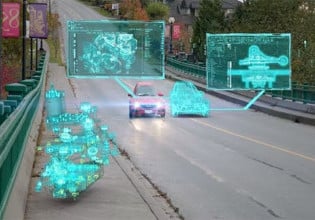Using data collected by ComplainTV, The Guardian claimed that Samsung televisions appear more efficient in tests than in real life, prompting the European Commission to open an investigation into allegations of cheating. It is claimed that "several EU states" have raised concerns over the efficiency of consumer electronics. According to the Guardian, the apparent differences came to light in unpublished lab tests by an EU-funded research group ComplianTV which recorded consistently higher energy consumption rates for the company's models in real-world situations than in official test conditions.
The ComplainTV studies cited found that Samsung’s ‘motion lighting’ feature reduced the TV sets’ brightness – and power consumption – under IEC test conditions. These involve the playback of fast sequences of varied material, such as recorded TV shows, DVDs and live broadcasts. But under real-world viewing conditions, no reductions in power consumption were registered, making the sets’ power consumption, fuel bills and carbon emissions correspondingly higher. In response, Samsung stated: “We firmly reject this suggestion, and in the interests of full transparency we have decided to publish the following information:
“Motion lighting helps save energy in real life: The feature mentioned in the article is called ‘motion lighting’, which reduces power consumption by reducing screen brightness when the picture on the screen is in motion. It is a standard out-of-the-box feature, which is switched on when the customer takes delivery of their TV, and remains on whenever the customer chooses to watch their TV in Standard viewing mode.
“Motion lighting is not a test-cheat: Motion lighting is not a setting that only activates during compliance testing. On the contrary, it is a default setting which works both in the lab and at home; delivering energy savings and helping us to reduce our environmental impact.
“Motion lighting was introduced in 2011 across all our TVs as part of a range of features we have developed to help reduce the environmental impact of our TV technology. We are immensely proud of these technologies and look forward to innovating further in this area.
“If the customer chooses to alter their display settings or switch to a different mode then the feature switches off, which gives our customers a simple choice of whether they choose to prioritize power efficiency or performance in their TV,†the statement from Samsung concluded.






